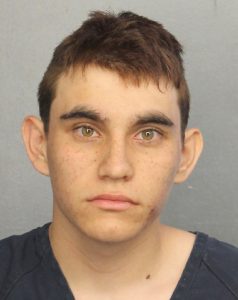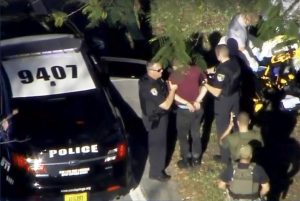
By Idrees Ali and Robin Emmott
BRUSSELS (Reuters) – Turkey said on Thursday it had demanded that the United States expel a Kurdish militia from the ground forces it backs in Syria, underscoring the widening gulf between the NATO allies since Ankara launched a new Syrian offensive last month.
Ties between Turkey and the United States, both allies in a U.S.-led coalition fighting against Islamic State, have been strained to the breaking point by Washington’s support for the Syrian Kurdish YPG militia, which Ankara sees as terrorists.
The issue is expected to dominate a visit to Turkey by U.S. Secretary of State Rex Tillerson on Thursday and Friday at a time when relations between Washington and Ankara are fraying over a range of other issues as well.
Turkey launched an air and ground operation in northwest Syria’s Afrin region to drive the YPG from its southern border.
Ankara considers the YPG to be an arm of the PKK, a banned group that has waged a decades-long insurgency in Turkey. The YPG is the main ground element of the Syrian Defence Forces (SDF), which the United States has armed, trained and aided with air support and special forces to fight Islamic State.
“We demanded this relationship be ended, I mean we want them to end all the support given to the Syrian arm of PKK, the YPG,” Turkish Defence Minister Nurettin Canikli told reporters in a briefing in Brussels, a day after meeting U.S. Defense Secretary Jim Mattis on the sidelines of a NATO meeting.
“We demanded this structure be removed from SDF,” he said.
Speaking with reporters on the sidelines of the NATO meeting, Mattis said his talks with his Turkish counterpart were open and honest, but acknowledged the differences.
“I believe we are finding common ground and there are areas of uncommon ground, where sometimes war just gives you bad alternatives to choose from…. We continue to collaborate on ways to ensure their legitimate concerns are addressed.”
RENEWED FOCUS
A U.S. statement said Mattis had urged Turkey to keep attention on fighting Islamic State: “He called for a renewed focus on the campaign to defeat ISIS, and to preventing any vestige of the terrorist organization from reconstituting in Syria,” it said, using an acronym for Islamic State.
Islamic State fighters were driven last year from all the population centers they occupied in both Syria and Iraq, but Washington still considers them a threat, capable of carrying out an insurgency and plotting attacks elsewhere.
Ankara has placed greater emphasis in recent months on the need to combat the Kurdish militia and has said the United States is merely using one terrorist group to combat another.
Turkey says the United States has yet to honor several pledges: to stop arming the YPG, to take back arms after Islamic State was defeated in Syria, and to pull YPG forces back from Manbij, a Syrian town about 100 km (60 miles) east of Afrin.
Canikli also said that Mattis had told him the United States was working on a plan to retrieve weapons given to the YPG, especially heavy weapons. However, Tillerson later said that Washington had “never given heavy arms” to the YPG and there was therefore “nothing to take back”.
POWERFUL FRIENDS
Turkey is the main Muslim ally of the United States within NATO and one of Washington’s most powerful friends in the Middle East dating back to the Cold War era. But widening differences on Syria policy are just one of a number of issues that have caused a rupture in that strategic relationship.
It also accuses Washington of sheltering a cleric it blames for plotting a failed coup in 2016. The United States convicted a Turkish banker mast month for violating sanctions on Iran in a case that included testimony alleging corruption by top Turkish officials. The two countries also halted issuing visas for months after locally hired U.S. consular staff were detained on suspicion of links to alleged coup plotters.
The Turkish authorities have jailed tens of thousands of people and ordered 150,000 fired or suspended from their jobs since the failed coup. President Tayyip Erdogan has increasingly used stridently anti-European and anti-American rhetoric.
The Turkish offensive against the YPG in Syria has so far been limited to Afrin, a border region where the United States is not believed to have troops on the ground. But Turkey has openly discussed extending it to other areas where its forces could potentially come into contact with units supported by the Americans. It says Washington should pull its forces out of the way; the United States says it has no plans to withdraw.
Canikli said he disputed Washington’s characterization of the U.S.-backed SDF as controlled by ethnic Arabs rather than the Kurdish fighters.
“Mattis said the SDF is largely controlled by Arab elements. We said on the contrary, the SDF is completely controlled by the PYD and YPG,” he said in comments broadcast live on television. “The other elements are for show only.”
(Additional reporting by Tulay Karadeniz in Ankara; Ezgi Erkoyun and Ali Kucukgocmen in Istanbul; Lisa Barrington in Beirut; Editing by Peter Graff)










